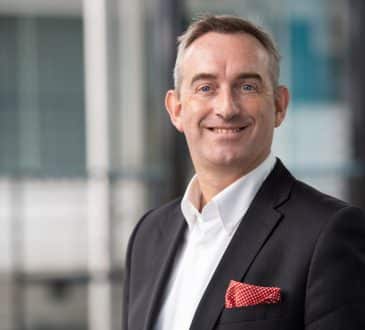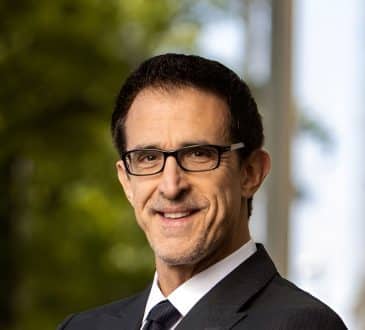The Turmoil, Uncertainty, Challenge And Opportunity: Am I Enough?

The world has shared an experience over the past few months as we all collectively deal with and recover from the global pandemic. Amongst the turmoil, uncertainty, challenge, and opportunity, leadership remains one of the most critically important elements for sustainable change. After the dust settles, many corporations and individuals will reflect and ponder if they truly are a force for good.
One person can only do so much, and time is a leveller for us all. On that basis alone we have to assess if we are truly multiplying the talent around us for the greater good. A ‘good’ that transcends shareholder value and a return on investment but focuses on purpose, value and personal growth. Without our people, we have nothing. So allow me to introduce you to the Leadership Equation, which Joe Fredericks, Chief Strategy Officer at PCA Global, actually created in the weeks leading up to the crisis that hit us early in 2020.
(TQ + EQ + DQ) x MQ
Joe explains, the challenge had been around long before Covid-19 hit us. “In the two decades leading up to Covid, the work that I had been asked to do with some of our biggest global clients often centred around how they could get more value out of their workforces – increased collaboration, increased innovation, increased performance, increased efficiency, increased revenues…and often that came down to the way their workforces were being managed, and, ultimately, led. ‘High achievers’ in those leadership positions had fantastic technical knowledge, but they sometimes struggled to translate that knowledge into wider growth beyond their own immediate scope or focus”
TQ – Technical Quotient (the WHAT)
The Technical Knowledge Joe refers to, is more than just IQ (intelligence), the role of academia, qualifications, accreditations and certificates on walls. These are and remain critical, however TQ is about inclusivity. It’s about those who have over many years acquired a technical ability that allows proficiency and even excellence. I remember serving with a number of police officers (both uniformed response and specialist detectives) who may have lacked examination credentials but oozed technical prowess that made them the best of the best. They were natural leaders, instinctive decision makers and had a sixth sense that would have impressed a Hollywood film director. TQ is a powerful asset, allowing leaders to clearly identify and isolate the WHAT; the issue, the problem, the matter requiring attention. Whilst powerful, the TQ will become magnified by the other components of the equation.
Joe explains, “The concept of IQ and EQ being important for leaders had been around for a very long time, but I felt IQ was a very excluding term, fit for a different era, more relevant for some sectors than others – so when I was trying to develop a formula for leadership that was inclusive and universal, I strongly believed that we needed to recognise people’s technical abilities, with as broad a definition of the word ‘technical’ as possible. And just as importantly, the equation needed to recognise that however broad our TQ might be, on its own, as a leader, without several other key ingredients being present, our TQ could actually be a diminisher”
What Joe calls the “curse of the high achiever” resides squarely in TQ. As this can be the place where the cerebral ability of one or a few will be leveraged as the sole solution to a knotty issue or challenge. Whilst this may prove successful in the short term, it can actually be a blocker for the inclusion of others to help solve or conquer the issue(s) at hand and if relied upon too often, it can diminish the impact of the collective knowledge within the team or the organisation.
EQ – Emotional Quotient (the HOW)
The second element of the equation, your emotional intelligence, allows you to integrate your thoughts (your internal voice) with your feelings (what your body tells you) in order to choose your behaviours (what you say and do). This ability to manage and lead yourself (the intrapersonal intelligence) combined with your ability to be acutely aware of others (interpersonal intelligence) allows a leader to manage their HOW. How you will engage, inspire, communicate, galvanise, empower and effectively lead others to help solve the problem, issue or deal with the matter identified.
“Intuitively we all know that our ‘How’ skills will inevitably play a critical role in how effective we can be as a leader – as even with all the TQ in the world, if we can’t manage ourselves or empathise with others, the communication of our ‘What’ is never going to be as impactful as it could be. That’s why the concept of EQ really took off in the 1990’s with the work of Mayer, Salovey, Goleman et al and organisations have been trying to help their leaders with this second key ingredient ever since”, Joe explained.
DQ – Decency Quotient (the WHY)
DQ appears in the equation as a newer addition to our understanding of Leadership. This is all about intention, motive and personal purpose; the (WHY) behind your leadership. DQ goes further than EQ, as it is about a leader’s care for those that they lead and a desire to always do right by those they are leading.
“I was first introduced to the concept of DQ in 2018 when working with, long-time client, Mastercard, as Ajay Banja, the (now outgoing) CEO of Mastercard, was one of the first to outline and practice DQ as being a constant force for good and an essential ingredient of effective leadership. With the evolution of modern Capitalism, where our customers and clients have demanded that organisations’ purposes are re-defined beyond bottom line growth and towards having a positive impact on the world, DQ is arguably one of the most powerful differentiators a leader can have. The authenticity of your purpose, both as an organisation and as a leader, has been placed under the microscope even more by Covid, as many of us have found ourselves reflecting on our own Why, and so DQ promises to be an even more important ingredient as we move in to the next normal”.
MQ – Multiplier Quotient (your SO WHAT)
Ask yourself this question. If you step away from your business for a period of team, will the organisation and the people within it still flourish?
Have you been the multiplier for their capabilities?
“When I was looking at the first part of the equation, there was still something missing. Yes, organisations had been asking me to help them develop their leader’s TQ, their EQ and more recently their DQ, but they were also asking for something else. They were also asking for that seemingly intangible and undefinable X-factor, that mysterious ability to lead teams beyond their expected performance; to develop people quicker and to greater heights; that ‘something’ that some leaders had which enabled them to get the very best out of their teams and without it being all about them. And it led me to adding the MQ ingredient to the equation – as if you can develop your ability to play the Multiplier role as a leader, then that can in turn multiply your own TQ EQ and DQ, as well as that of everybody you come in to contact with. We don’t want you to stop being a high achiever, as that is one of the key skills you bring to the table, but you cannot be an island as a leader and so you need to re-imagine how you define the word achievement. Achievement must become about other people’s performance and how effectively you empower them to work together for the collective DQ”.
Within the heart of your MQ lies another essential ingredient. Human Centred Leadership (HCL). Where did this come from?
During the writing of my recent co-authored book, ‘The Leader’s Secret Code’ research was at the heart of our findings.
That research included use of the Cross-National Time Series Data Archive with access to 200 years of annual domestic facts and figures from 200 countries and 196 categories.
We assessed over 700,000 articles written on leadership (with the help of AI), we interviewed thirteen iconic leaders from across disciplines; from law and medicine to the NBA and professional dance. We also had 1000 leaders from 17 countries add to the research by way of our online tool. All in all, we were left with 143,000 separate data points.
Out of this research the Leader’s Secret Code emerged along with a very clear ‘red thread’……Human Centred Leadership. We then discovered the seven components of Human Centred Leadership to include; curiosity, empathy, presence, personal purpose, humility, inclusivity and vigilance. (I will deal with these elements in a separate article)
As we move out of the Covid landscape and into whatever is next, the fear is that the pressures on leaders to develop their TQ and EQ to even higher levels is going to be immense, unrealistic and potentially detrimental to their already fragile mental health and wellbeing.
I ask Joe to provide his summary viewpoint. “The danger is that it will create a new set of leaders, who take everything on their own shoulders and who only look inward to try to overcome the many challenges that this post-Covid period will inevitably bring. I’m hoping though that this equation will provide an opportunity to place our focus elsewhere – to identify a strong DQ as our collective north star and a concentration for leaders on how to increase their MQ…instead of a transactional world where we desperately try to ‘solve’ things, a relational world where we multiply the humanity around us.”
Written by Adam Pacifico. Here’s what you’ve missed?
World’s Happiest Countries.
Countries With The Highest Life Expectancy.
World’s Most (And Least) Religious Countries.
World’s Best Countries For Investment In Travel And Tourism Sector.
Bring the best of the CEOWORLD magazine's global journalism to audiences in the United States and around the world. - Add CEOWORLD magazine to your Google News feed.
Follow CEOWORLD magazine headlines on: Google News, LinkedIn, Twitter, and Facebook.
Copyright 2025 The CEOWORLD magazine. All rights reserved. This material (and any extract from it) must not be copied, redistributed or placed on any website, without CEOWORLD magazine' prior written consent. For media queries, please contact: info@ceoworld.biz








